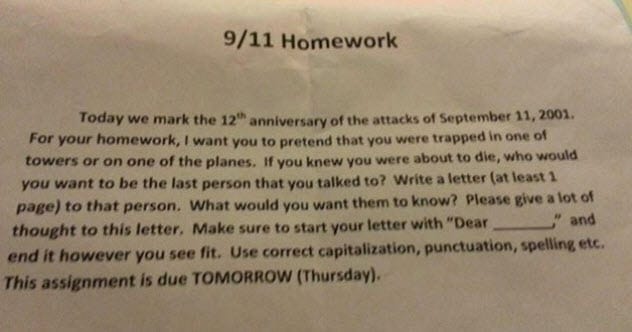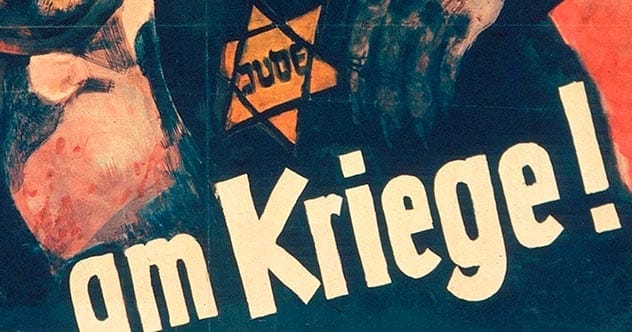Students across the globe often complain about homework. Parents and teachers expect these assignments to guide intellectual and ethical development. However, some assignments cross the line, sparking controversy and debate. Let’s explore ten homework assignments that stirred public firestorms, hurt feelings, and put teachers in hot water.
10. Beer Brewing Assignment
A biology teacher at Ralston Valley High School in Colorado encouraged students to brew beer in class to learn about fermentation. Students were also encouraged to explore wine, champagne, and vodka production outside of school and tour the Coors Brewery for extra credit. Parents worried about exposing underage students to alcohol, fearing it would normalize dangerous behavior. The Jefferson County School District defended the lesson, noting that teaching fermentation aligns with Colorado standards. However, they reviewed the assignment due to parental concerns.
9. Serial Killer Assignment
At Northern Bay College’s Goldsworthy Campus in Australia, a forensic psychology class assigned students to create projects related to serial killers. Tasks included drawing a cartoon of a serial killer murdering someone, writing a poem, designing a children’s book about serial killers, inventing a serial killer board game, and drawing a serial killer’s dream house floor plan. Parents were outraged, leading the principal to withdraw the assignment immediately. Scott Bonn, a serial killer expert, noted that the assignment reflected serial killers’ deep penetration into public consciousness and popular culture.
8. Slavery And Mathematics Assignment
In Norcross, Georgia, at Beaver Ridge Elementary School, a controversial homework assignment combined slavery and math for third graders. Questions included: “If Frederick got two beatings per day, how many beatings did he get in one week?” and “Each tree had 56 oranges. If eight slaves pick them equally, then how much would each slave pick?” Parents were shocked and uncomfortable, with some considering transferring their children to another school. The NAACP became involved and called for the termination of the teachers involved. The school principal attempted to defend it as a cross-curricular effort to improve understanding, especially in math for African-American students.
7. Nazi Homework Assignment
In Albany, New York, a high school teacher assigned a persuasive writing essay with the prompt: “You must argue that Jews are evil and use solid rationale from government propaganda to convince me of your loyalty to the Third Reich!” Over one-third of the students refused to complete the assignment, arguing that the topic was non-debatable. The assignment caused widespread outrage, leading to apologies from the superintendent and sensitivity programs run by the Anti-Defamation League.
6. September 11 Assignment

A teacher at Fairview Junior High in Alvin, Texas, asked middle school students to write a letter to a loved one as if they were trapped in one of the towers or planes involved in the September 11, 2001, tragedy. Parents were upset, claiming the teacher went too far by requiring students to write what amounted to a 9/11 suicide note. The school district apologized for the insensitivity, attributing the controversy to the students’ young age.
5. Native American Assignment

In Minocqua, Wisconsin, a high school math teacher, Richard Vesbach, handed out an algebra puzzle with a controversial punchline. The puzzle asked, “What happened after Chief Short Cake died?” The answer, once the problems were solved, was “Squawburyshortcake.” The term “squaw” is a derogatory term for Native American women. A Native American student’s mother posted the assignment on social media, sparking outrage. The teacher apologized, stating the assignment was from an old workbook and that he never intended to offend. The school was satisfied with his apology and self-imposed punishment.
4. Stomping On Jesus Assignment
Florida Atlantic University professor Deandre Poole instructed students in his Intercultural Communications class to write the name “JESUS” on a piece of paper and step on it to discuss cultural symbols. Many students refused, finding the exercise offensive. Despite the university’s defense that the lesson encouraged students to view issues from multiple perspectives, then-Florida Governor Rick Scott called for an investigation. The professor retained his job amidst the controversy.
5. Sex Toy Assignment

At Northwestern University, Professor John Michael Bailey’s human sexuality course was known for unique experiences. In 2011, students were invited to watch a naked woman “perform” with sex toys, including one attached to a reciprocating saw. While students who attended were not the ones who protested, the university administration deemed it inappropriate and not in keeping with the university’s academic mission. The professor expressed mixed feelings, defending the event as a thoughtful discussion of controversial topics.
2. Public Killing Of A Chicken Assignment
In spring 2013, a student at the Alberta College of Art and Design in Canada performed a critique of food production by walking into the school cafeteria with a live chicken. He then slit the bird’s throat, plucked its feathers, and stuffed its corpse into a cooking pot. Students were upset by the violent act. While the student justified the stunt as showcasing the gap in understanding of food production, the professor, Gordon Ferguson, faced criticism for approving the act. Ferguson was suspended but eventually reinstated, and the college offered counseling to those in attendance.
1. Obama Assignment
In fall 2012, Sharon Sweet, an associate professor at Brevard Community College in Florida, required her students to sign pledges to vote for Barack Obama in the upcoming election. Students were asked to sign a sheet that read, “I pledge to vote for President Obama and Democrats up and down the ticket.” The college fired Sweet for creating a hostile environment and misrepresenting her intentions, as she claimed she was merely registering voters. The college emphasized policies against soliciting support for political candidates during work hours or on college property.
These controversial homework assignments sparked significant debate, reflecting differing views on appropriate educational content and ethical boundaries. Each case highlights the challenges educators face in balancing academic freedom with community standards and sensitivities.
What do you think about these controversial assignments? Leave your comment below!










